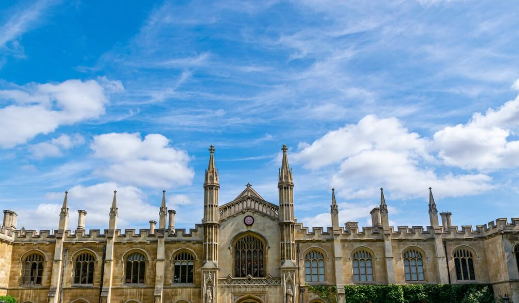The history of universities dates back many centuries, with the earliest institutions emerging in the medieval period. Here are the 15 oldest universities in the world, known for their longstanding traditions of scholarship and education:
- University of Al Quaraouiyine (Morocco) – Founded in 859 AD: Recognized by UNESCO and the Guinness World Records as the oldest continuously operating degree-granting university in the world.
- Al-Azhar University (Egypt) – Founded in 970-972 AD: One of the oldest and most prestigious Islamic universities, known for its contributions to Islamic jurisprudence, theology, and Arabic literature.
- University of Bologna (Italy) – Founded in 1088 AD: Considered the oldest university in Europe, it established the academic structure and governance that many modern universities still follow today.
- University of Oxford (United Kingdom) – Founded in the 12th century: The exact date of foundation is unknown, but it is the oldest university in the English-speaking world.
- University of Paris (France) – Founded around 1150 AD: Known as the Sorbonne, it was an important center of medieval scholastic thought, though it was temporarily suppressed in 1793 during the French Revolution.
- University of Salamanca (Spain) – Founded in 1134 AD: The third oldest university in Europe, it played a significant role in the intellectual life of Spain.
- University of Padua (Italy) – Founded in 1222 AD: Renowned for its contributions to science and law, it was a leading center of the Renaissance.
- University of Naples Federico II (Italy) – Founded in 1224 AD: Established by Emperor Frederick II, it is the oldest public non-sectarian university in the world.
- University of Toulouse (France) – Founded in 1229 AD: One of the oldest universities in France, it was established following the Treaty of Paris.
- University of Coimbra (Portugal) – Founded in 1290 AD: Initially established in Lisbon, it was permanently moved to Coimbra in 1537.
- University of Alcalá (Spain) – Founded in 1293 AD: Later re-founded in Madrid as the Complutense University of Madrid in 1836, it retains a significant historical legacy.
- La Sapienza University of Rome (Italy) – Founded in 1303 AD: One of the largest European universities, known for its research and academic prowess.
- University of Perugia (Italy) – Founded in 1308 AD: A prominent Italian university known for its law and humanities programs.
- University of Florence (Italy) – Founded in 1321 AD: A major center for Renaissance humanism and an important institution in modern Italian education.
- Charles University in Prague (Czech Republic) – Founded in 1348 AD: The oldest university in Central Europe, it has played a key role in the region’s cultural and scientific development.
These institutions not only have deep historical roots but also continue to be influential centers of learning and research.
The University of Al Quaraouiyine, located in Fez, Morocco, holds the distinction of being the oldest continuously operating degree-granting university in the world. Here are some key points about this historic institution:
History and Founding
- Founded in 859 AD: The university was established by Fatima al-Fihri, a learned woman and a member of a wealthy merchant family.
- Location: Situated in Fez, one of the major cultural and intellectual centers in the Islamic world during the medieval period.
Academic Contributions
- Islamic Scholarship: The university has been a pivotal center for Islamic studies, particularly in jurisprudence (fiqh), grammar, rhetoric, logic, medicine, mathematics, astronomy, chemistry, history, geography, and music.
- Library: Al Quaraouiyine houses one of the oldest libraries in the world, with a vast collection of manuscripts and historical texts.
Influence and Legacy
- Influence on Education: The institution significantly influenced the development of education in the Islamic world and beyond. Its scholarly outputs have contributed to various fields, particularly in the sciences and humanities.
- Scholarly Figures: Numerous notable scholars, including Ibn Khaldun, Ibn al-Khatib, and Leo Africanus, studied or taught at Al Quaraouiyine.
Modern Era
- Continued Operation: The university continues to function as a leading center of Islamic education and cultural preservation. It has modernized over the years while maintaining its historical and academic heritage.
- UNESCO and Recognition: Recognized by UNESCO and the Guinness World Records for its historical significance and continuous operation as a degree-granting institution.
The University of Al Quaraouiyine exemplifies the rich intellectual traditions of the Islamic world and stands as a testament to the enduring legacy of early educational institutions.
Al-Azhar University, located in Cairo, Egypt, is one of the oldest and most prestigious universities in the world, especially renowned for its role in Islamic education. Here are some detailed points about Al-Azhar University:
History and Founding
- Founded in 970-972 AD: Al-Azhar University was established by the Fatimid Caliphate as a center for Islamic learning.
- Al-Azhar Mosque: The university originated from Al-Azhar Mosque, which was built to serve as a congregational mosque and an educational institution.
Academic Contributions
- Islamic Studies: Al-Azhar is famous for its rigorous programs in Islamic jurisprudence (fiqh), theology, Quranic sciences, and Arabic literature. It serves as a leading authority in Sunni Islam.
- Curriculum: Traditionally, the curriculum included a range of subjects such as grammar, rhetoric, logic, astronomy, philosophy, and medicine, reflecting a comprehensive approach to education.
- Modernization: Over the centuries, Al-Azhar has expanded its academic offerings to include modern disciplines such as science, engineering, medicine, and social sciences, adapting to contemporary educational needs.
Influence and Legacy
- Global Influence: Al-Azhar University has had a profound influence on Islamic education worldwide. It is considered the chief center of Arabic literature and Islamic learning in the Sunni Muslim world.
- Notable Alumni: The university has produced many prominent scholars, theologians, and political leaders who have made significant contributions to Islamic thought and global intellectual discourse.
Structure and Organization
- Educational Framework: Al-Azhar operates under a traditional Islamic educational framework, emphasizing the study of classical texts and religious law.
- Leadership: The Grand Imam of Al-Azhar is a highly respected religious authority in Sunni Islam and plays a crucial role in the university’s administration and its religious and educational directives.
Modern Era
- Reforms and Expansion: In the 19th and 20th centuries, Al-Azhar underwent significant reforms to modernize its curriculum and administration. These reforms aimed to integrate modern sciences and expand the university’s global influence.
- Cultural and Social Role: Beyond its educational mission, Al-Azhar is a key cultural and religious institution in Egypt and the Muslim world, often engaging in interfaith dialogue and promoting religious moderation.
Global Recognition
- UNESCO and Beyond: Al-Azhar University is recognized for its historical and educational significance. It continues to be a beacon of learning and a prominent voice in Islamic scholarship and jurisprudence.
Al-Azhar University’s enduring legacy and ongoing contributions to education and Islamic scholarship underscore its importance as one of the most influential and enduring educational institutions in the world.






